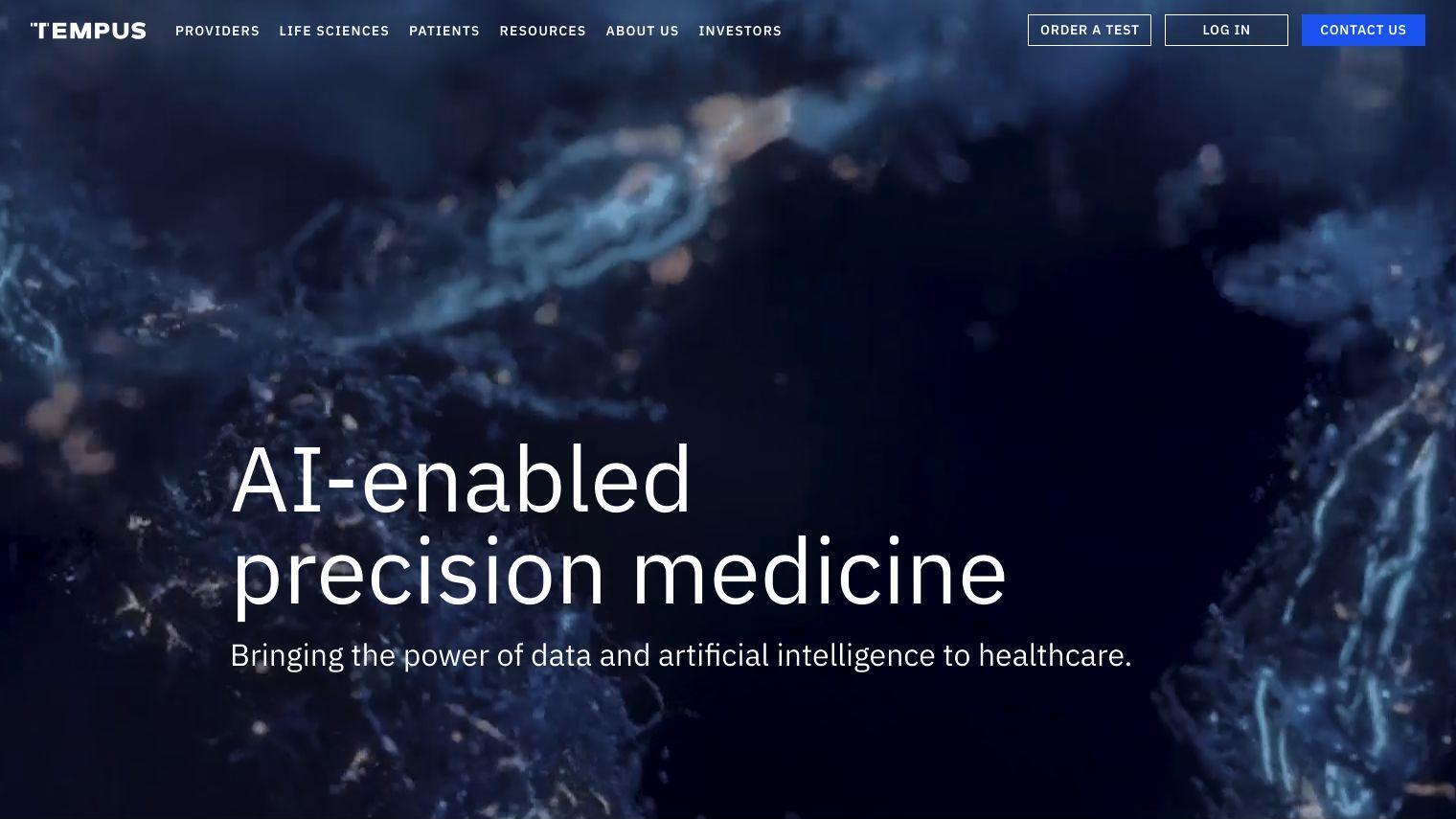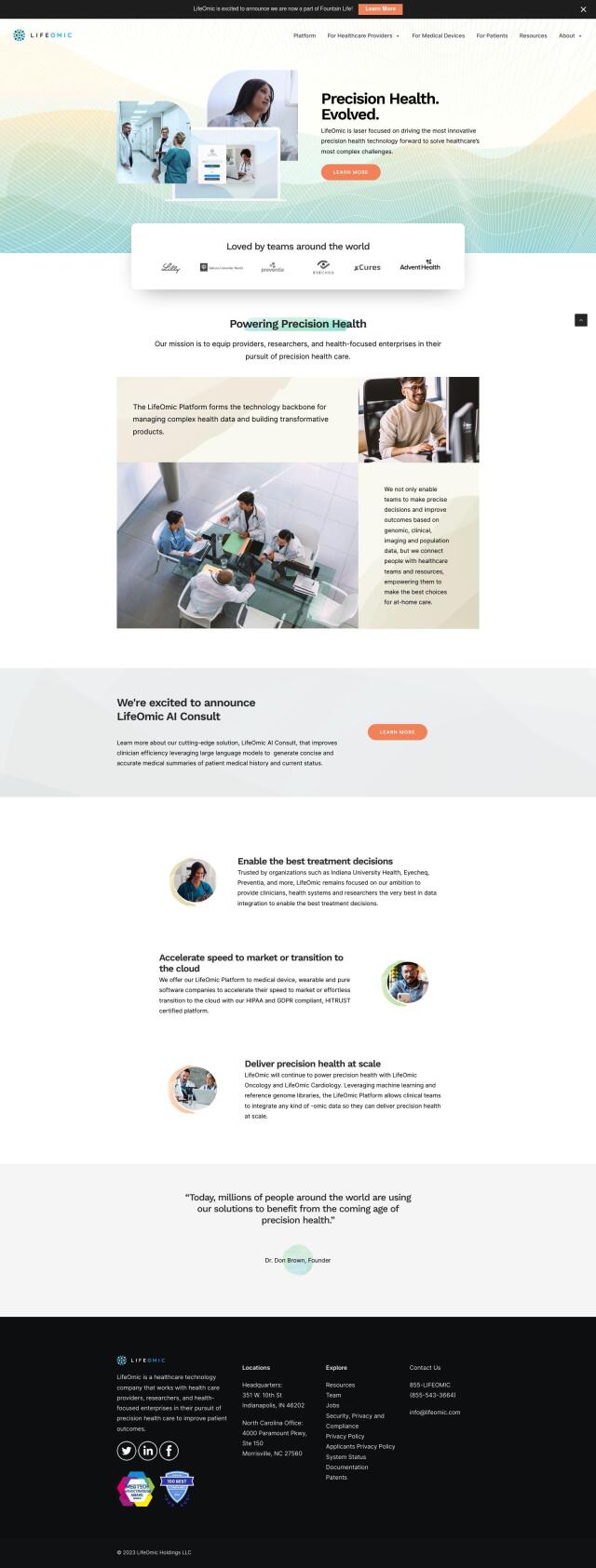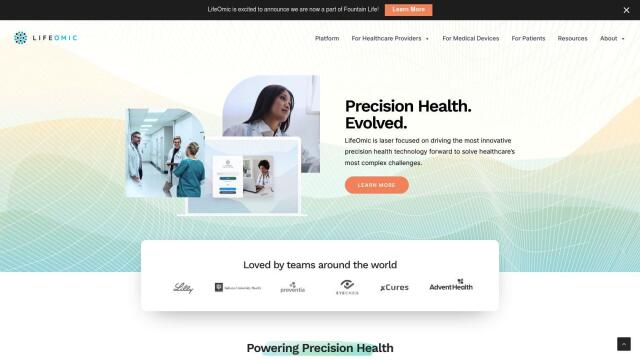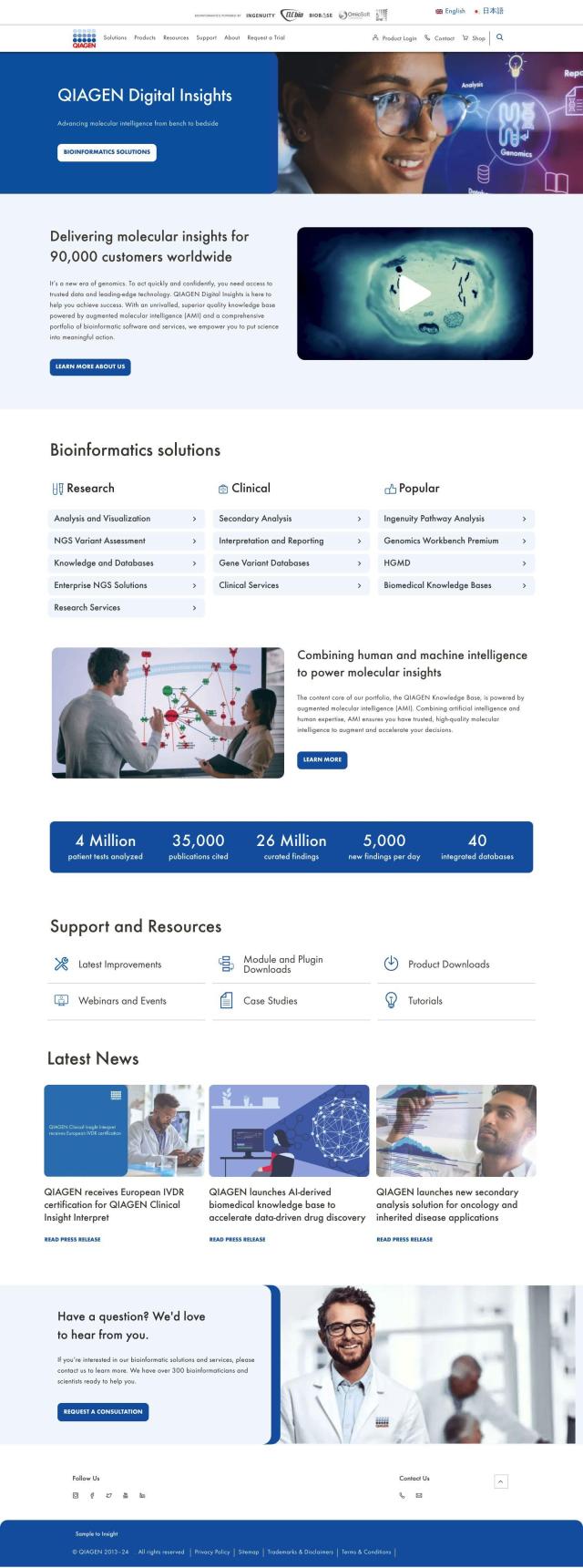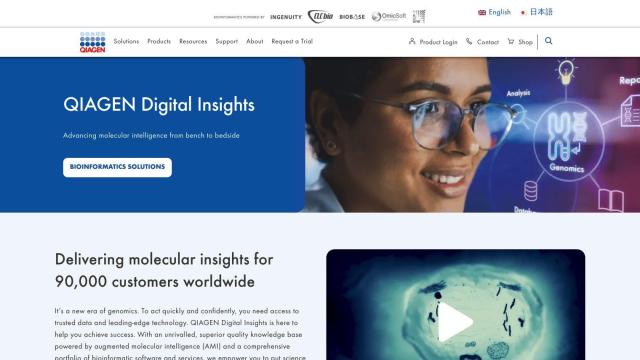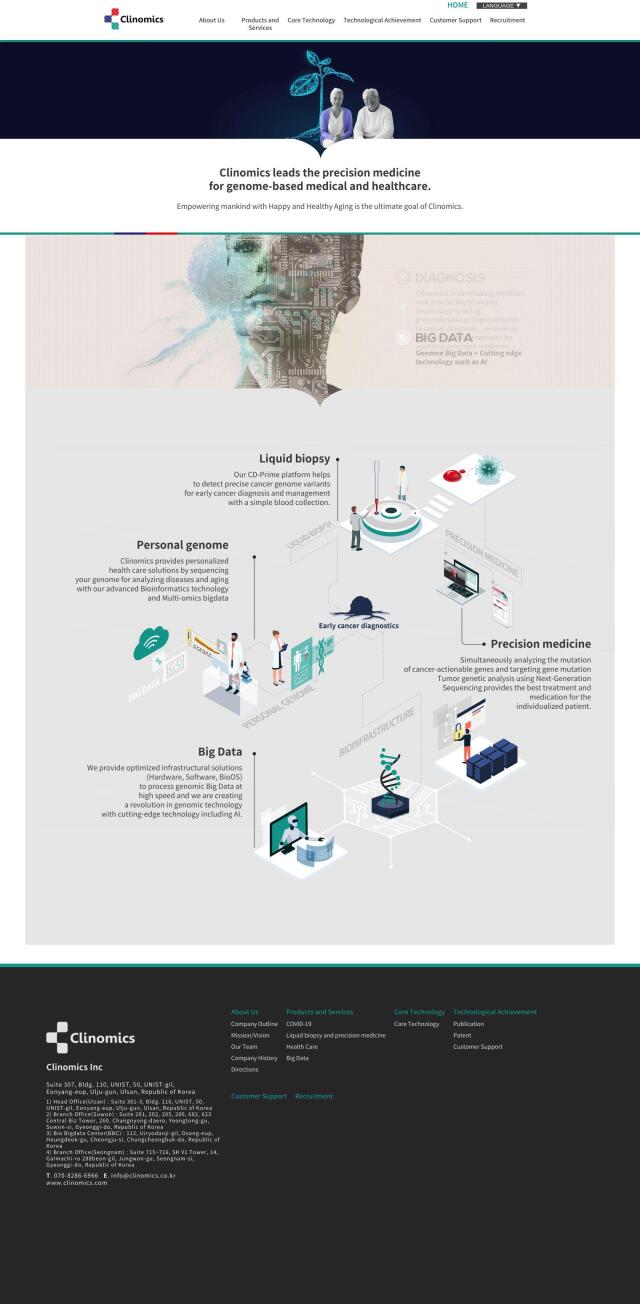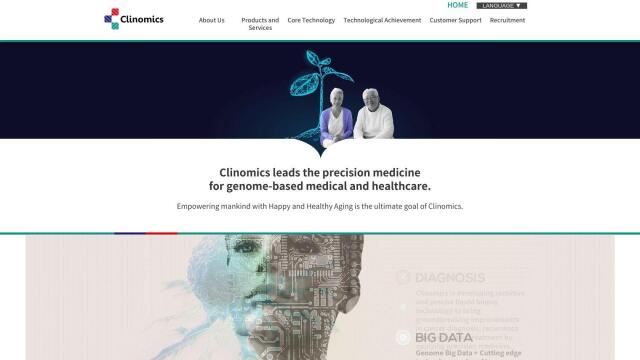Tempus offers AI-powered precision medicine solutions that give healthcare providers the insights and information they need to make more effective cancer treatments. By combining a large library of clinical and molecular data, Tempus accelerates the discovery of new targets, predicts treatment response, identifies life-saving clinical trials, and improves diagnosis.
Some of the key features include:
- ONE: An AI-powered clinical assistant that gives clinicians patient insights right in the moment of care.
- NEXT: Identifies gaps in care and helps to close them for better patient outcomes.
- LENS: Provides access to and analysis of multimodal real-world data.
- ALGOS: Algorithmic models integrated with assays for deeper insights.
Tempus serves a range of customers:
- Providers: Helps physicians make more informed treatment decisions.
- Life Sciences: Helps pharmaceutical and biotech companies develop better drugs.
- Patients: Helps patients get personalized treatment options.
Scientific publications have validated the power of Tempus' platform:
- A study in Nature Biotechnology shows that Tempus' xT Platform opens up more personalized therapeutic options for cancer patients.
- A Pan-cancer Organoid Platform for Precision Medicine study shows the power of a neural-network-based approach for predicting patient-specific drug responses.
- Validation of a liquid biopsy assay shows the power of combining liquid biopsies with standard tissue genotyping.
Tempus has partnerships with more than 65% of all Academic Medical Centers in the US and has partnered with more than 95% of top 20 pharma oncology companies. The company has also received FDA Breakthrough Device Designation for its HLA-LOH Companion Diagnostic Test and launched an RNA sequencing test, Tempus xR.
Tempus is dedicated to improving patient care through high-quality testing, clinical trial matching, and deep research data, and to transforming personalized patient care.
Published on June 14, 2024
Related Questions
Tool Suggestions
Analyzing Tempus...

